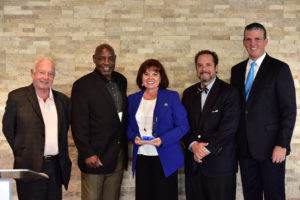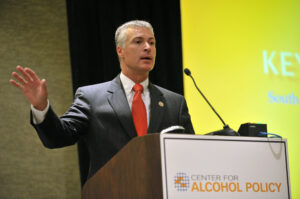Fears of Tainted Alcohol at Mexican Resorts Underscore Need for Effective Alcohol Regulation
Center for Alcohol Policy Study Explains How Regulations Prevent Counterfeit Alcohol in the U.S.
ALEXANDRIA, Va. – Recent news reports indicate that several tourists and families traveling to all-inclusive resorts in Mexico suspect they were given tainted alcohol, which in some cases resulted in death. The reports underscore a stark contrast between alcohol regulation in Mexico and the United States, where state-based alcohol regulation and a three-tiered system of distribution provides a clear chain of custody and guards against tainted alcohol products reaching consumers.
The Milwaukee Journal Sentinel pointed to a 2015 report from Mexico’s Tax Administration Service, which found that 43 percent of all the alcohol consumed in the nation is illegal, produced under unregulated circumstances resulting in potentially dangerous concoctions. The paper reported, “The national health authority in Mexico has seized more than 1.4 million gallons of adulterated alcohol since 2010 — not just from small local establishments, but from hotels and other entertainment areas, according to a 2017 report by the country’s Federal Commission for Protection against Health Risks.”
A report by former Chief Counsel for the United States Alcohol and Tobacco Tax and Trade Bureau Robert M. Tobiassen, “The ‘Fake Alcohol’ Situation in the United States: The Impact of Culture, Market Economics, and the Current Regulatory Systems,” explains why there are few incidents of fake alcohol products in the United States. The study describes “strong regulatory systems that police the production, importation, distribution and retail sales of alcohol beverages through independent parties” and the country’s “competitive marketplace that provides alcohol beverages at all price points.”
Center for Alcohol Policy Executive Director Michael Lashbrook said, “The state-based system of alcohol regulation implement in the United States following passage of the 21st Amendment has been extremely effective at supporting a competitive marketplace while at the same time promoting public safety. America does not experience large problems with bootlegging, counterfeit products or a black market, which were common during national Prohibition and have proven deadly in other parts of the world that lack an effective regulatory system for alcohol.”
Visit the Center for Alcohol Policy website to read the full report on counterfeit alcohol and watch a video about the origin of America’s state-based alcohol regulatory system.
A wide range of experts will come together to discuss current alcohol laws and challenges at the Center for Alcohol Policy’s 10th Annual Alcohol Law and Policy Conference, taking place September 6-8, 2017, in Chicago.
###
The Center for Alcohol Policy is a 501 (c)(3) organization whose mission is to educate policymakers, regulators and the public about alcohol, its uniqueness and regulation. By conducting sound and scientific-based research and implementing initiatives that will maintain the appropriate state-based regulation of alcohol, the Center promotes safe and responsible consumption, fights underage drinking and drunk driving and informs key entities about the effects of alcohol consumption. For more information, visit www.centerforalcoholpolicy.org or follow the Center on Twitter at www.twitter.com/AlcoholPolicy.

 DALLAS, TX – The
DALLAS, TX – The 